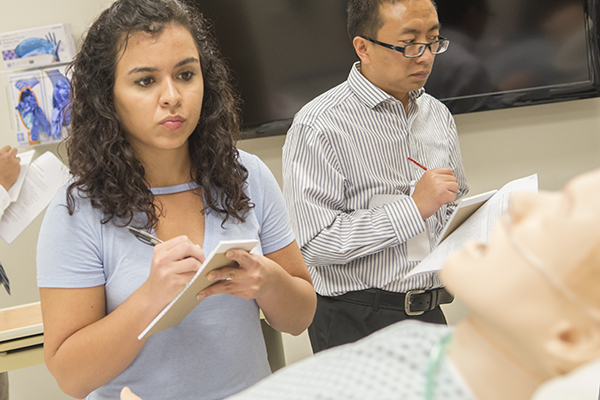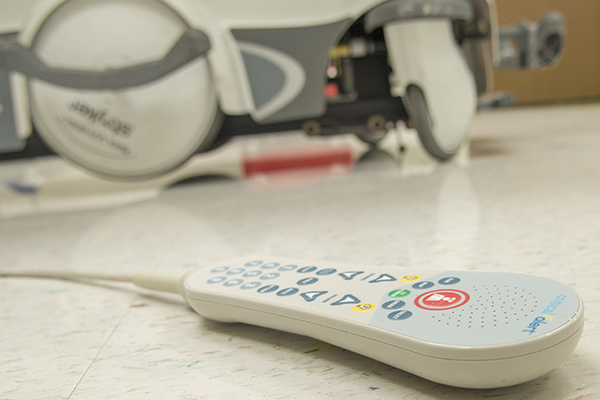
Participants in the first full USF Health Graduate Medical Education program’s Patient Safety Workshop are searching a simulated patient room for as many safety hazards as possible.
In a standard hospital room lie dozens of potential dangers threatening the well-being of the patient. It’s up to every member of the health care team to mitigate these dangers to ensure the safest environment possible.
USF Health’s Graduate Medical Education program hosted a Patient Safety Workshop on April 24 to help residents identify possible causes of patient care errors and learn how to effectively communicate those errors, as well as teach protocols and mechanisms that allow all members of the health care team to speak up.
“What this workshop is trying to emphasize is how to address these issues from a systems perspective while continuing the resident’s medical education,” said Cuc Mai, MD, assistant dean for the USF Health Morsani College of Medicine Graduate Medical Education program. “At the end of the day, patient safety is the most important thing to a health care team.”

Yilmarie Rosado-Acevedo, MD, a pediatrics intern at the USF Morsani Center for Advanced Healthcare, notices an air-tube around a mannequin’s neck during the USF Health GME Patient Safety Workshop.
One highlight of the workshop was the simulated hospital room riddled with patient safety hazards the physicians had to identify. Many were obvious, like the sharps sticking out of a biohazard disposal bin, and others required much more attention to identify, such as the patient not wearing non-slip socks and latex gloves mixed with non-latex gloves. While a scenario like that is unlikely, the importance of being able to detect those hazards proved important to the participants.
“The workshop is a very important tool that will be a great help to all of us,” said Arash Naghavi, MD, a USF radiology oncology resident at Moffitt Cancer Center. “You can never be too safe when it comes to patient safety.”

A patient’s call remote on the floor is a major safety issue in the patient room.
During the workshop, held at the USF Health Center for Advanced Medical Learning and Simulation, the group also discussed methods of effectively communicating patient safety events to hospital administration, patients and families. When incidents that threaten patient safety get reported, they can be used to identify vulnerabilities within a system and are often drivers to change them, according to Dr. Mai.
To finish, the residents conducted a root cause analysis, often used to understand the causes of an adverse event and identify flaws in the system that can be fixed to prevent medical errors from happening again. “This is about preventing future events, not blaming or punishing people for what happened,” Dr. Naghavi said.
This first full workshop, with 13 participants from residency training programs in internal medicine, neurosurgery, and radiation oncology, followed a successful pilot workshop in early April. The Graduate Medical Education plans to schedule more throughout the year to train all incoming residents.
